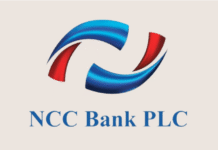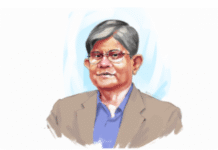
Governor Fazle Kabir is likely to announce the half-yearly monetary policy statement for July-December 2019 period within a couple of days
The Bangladesh Bank (BB) should be coming up with tips on as to how the banks will cope with the persistent realities of the banking sector in complying with the upcoming monetary program if the target of credit set for the private sector remains as high as the previous one and single digit lending rates are fixed, Syed Mahbubur Rahman, chairman of Association of Bankers, Bangladesh, has said.
Syed Mahbub, who is also a senior banker and currently heading Dhaka Bank Limited as managing director and chief executive officer, also forecasts a looming ‘stalemate’ in the banking sector unless the monetary regulator keeps adequate space for banks for ‘safe exit’ from the harsh realities of high non-performing loans (NPL), increasing government borrowing, liquidity crunch and declining deposit growth.
Governor Fazle Kabir is likely to announce the half-yearly monetary policy statement for July-December 2019 period, the first of two annual programs, within a couple of days.
The BB is set to announce the monetary program at a time when the private sector credit registered a five-year low growth — 11.29% against the target of 16.5% during July-June (last fiscal), and the government borrowing from banks was high, squeezing the loanable money for the private sector when deposit mobilization is low.
“Actually, we (regulator, banks) must work together to find a way out. The regulator should come up with guidelines for banks so that banks can have a safe exit,” Syed Mahbubur Rahman has told Dhaka Tribune.
He observes that the BB should cautiously move ahead to facilitate the government’s visionary macroeconomic strategy while maintaining the stability of the banking sector.
The banking sector’s NPL stood at Tk1,10,870 crore in March this year, highest in the country’s banking history.
The government borrowing more than doubled at Tk26,446 crore as of June 30 from Tk11,731 crore in the same period of the previous fiscal, according to BB data. The actual borrowing from banks was, however, lower than the target of Tk30,900 crore last fiscal.
For the current fiscal, the borrowing target from banks has been set at Tk54,800 crore, according to budget documents.
Meanwhile, banks’ deposit growth has slowed down as the government offers higher interest for sale of national savings certificates (NSC) to mobilize funds to meet the growing need for local resources to implement annual development budget. Moreover, the government is unilaterally directing banks to implement single digit interest rates for lending and deposits.
“Already the government borrowing has gone up that squeezes banks’ capability to facilitate private sector with sufficient credit as projected in the monetary program,” he observes.
The private sector witnessed a 16.94% credit growth in 2017-18, 15.66% in 2016-17 and 16.78% in 2015-16 fiscals.
On the government’s unilateral pressure on banks to lower the interest rates to single digit, ABB chairman says, “We must serve national interests. But, that should be within the tolerable limit.”
Echoing him, the World Bank (WB) Lead Economist Zahid Hussain notes that the BB is going to unveil the monetary program at a challenging time.
“Private sector credit growth is not at a satisfactory level. On the other hand, the government borrowing from the banking system doubled in last fiscal while the target for current fiscal was also set higher,” he says.
“Banks do not have enough liquidity for lending, because deposits are being diverted to the government schemes mainly due to higher interest on public savings instruments than deposit rates offered by the commercial banks,” he maintains.
Talking to Dhaka Tribune, a number of senior bankers have urged the central bank to formulate a farsighted monetary program, which will address international developments in trade, commerce and investments.
Monetary program should accommodate policy with regard to fetching higher export receipts, more import benefits and inflow of foreign investment by adopting flexible foreign exchange rates, they suggest.
Source: Dhaka Tribune.









